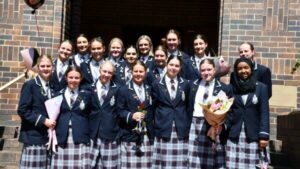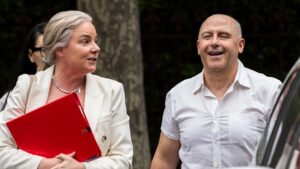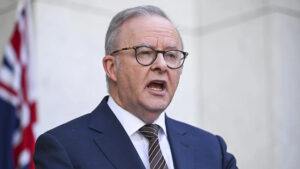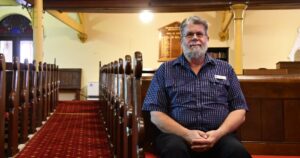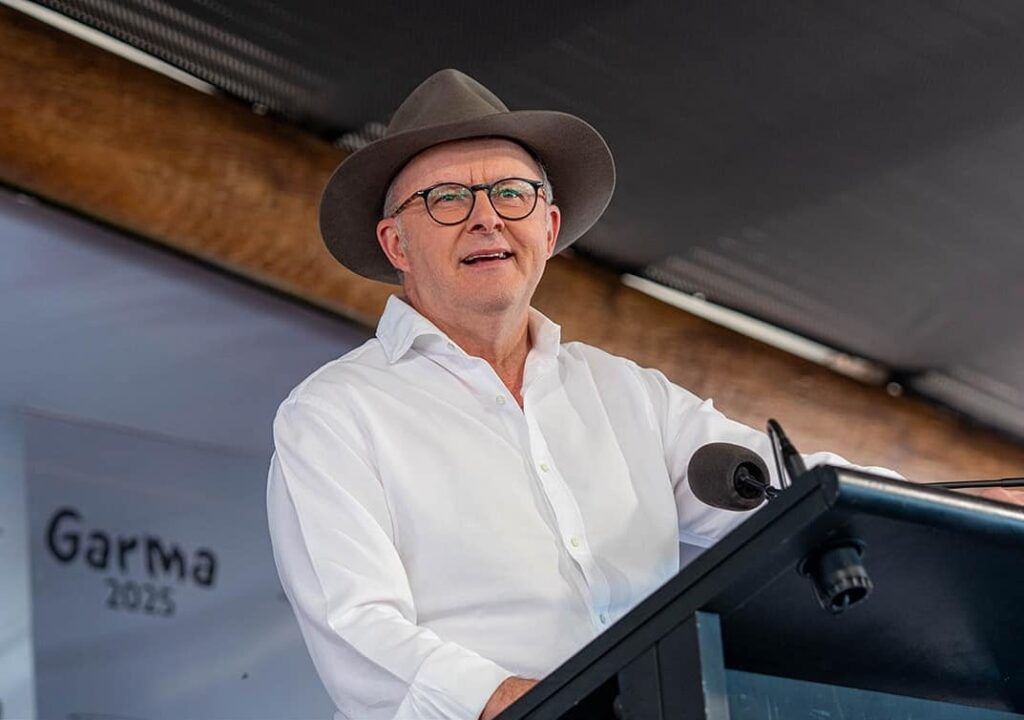
UPDATE: Prime Minister Anthony Albanese addressed attendees at the 2025 Garma Festival in north-east Arnhem Land, emphasizing the urgent need for education and empowerment for Indigenous Australians. His speech follows the recent failure of the Voice referendum, leaving many to question the government’s commitment to closing the gap between Indigenous and non-Indigenous communities.
During his fourth appearance at the festival, Albanese faced direct appeals from Yolnu leader Djawa Yunupingu, who urged the PM to advocate for young Aboriginal Australians. Yunupingu stated, “We hope the PM will work for the young people… and look for a better way.” However, the aftermath of the referendum has left a chasm in national response to critical issues such as truth-telling, deaths in custody, and economic stagnation.
The Yoorrook Justice Commission in Victoria recently revealed harrowing findings, concluding that First Nations communities have suffered crimes against humanity and genocide. Yet, the federal government has not taken any substantial action, with similar initiatives stalled in Queensland’s Truth-Telling and Healing Inquiry.
In a developing situation, the newly elected government of the Northern Territory is facing backlash for policies seen as regressive, prompting calls for immediate reforms. NT politician Yiniya Mark Guyula has raised alarms over the increasing imprisonment rates among Indigenous populations, criticizing the inhumane conditions in detention facilities.
Speaking at Garma, Guyula condemned the NT government’s stance, declaring, “You are making costly mistakes, you are not listening,” directing his remarks toward NT Aboriginal Affairs Minister Steve Edgington, who attended the festival.
Meanwhile, federal opposition leader Sussan Ley opted for a remote community visit in the Kimberley instead of attending Garma, prompting criticism from Albanese, who stated that Australians expect more than just photo opportunities from their leaders.
In response to these pressing issues, Albanese announced significant investments aimed at closing the gap, including millions of dollars for clean energy projects and mobile TAFE initiatives for remote Indigenous communities. This is part of a broader effort to establish new economic partnerships and assist native title holders with faster project approvals on their land.
Critics, including Uluru Dialogue Co-Chairs Megan Davis and Pat Anderson, have described the government’s approach as “performative,” highlighting the urgent need for tangible action rather than symbolic gestures.
Adding to the emotional weight of the festival, Lidia Thorpe, an independent MP, brought a message stick into parliament last week, representing the rising toll of Aboriginal deaths in custody, now standing at 602. Thorpe passionately questioned, “When does it end?” as the number of deaths continues to rise, underscoring a dire need for government accountability.
As the nation grapples with these profound issues, the question remains: what will be the government’s next steps? The urgency of the moment demands action that will resonate through communities across Australia. With the spotlight on the government’s decisions, all eyes are on Canberra for a response that matches the gravity of the situation.

